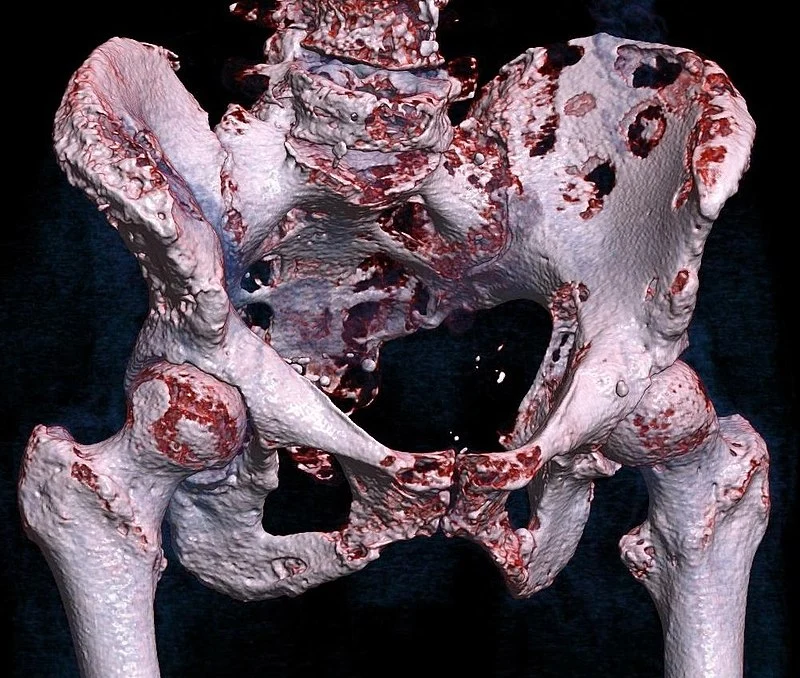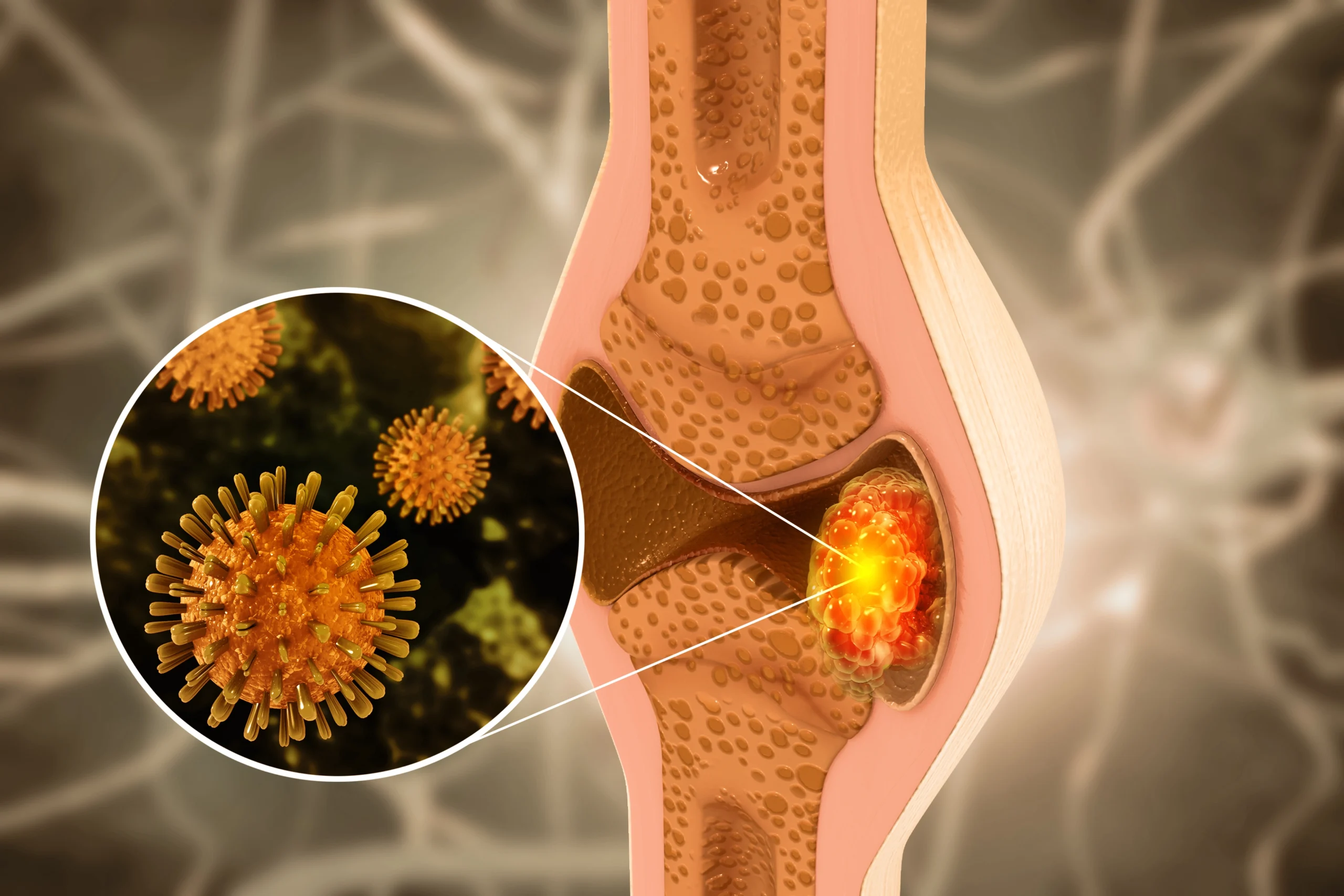Metastatic Bone Disease Overview
Metastatic bone disease occurs when cancer from another part of the body spreads to the bones. This condition is common among cancers such as breast, prostate, lung, and kidney cancers. Metastatic bone disease can cause significant pain and complications, affecting the patient’s quality of life. At Fight Bone Tumors, Dr. Kishore B Reddy and our dedicated team offer specialized care for patients with metastatic bone disease, providing advanced treatment options and compassionate support.
Symptoms:
Metastatic bone disease can present a variety of symptoms, including:
- Bone Pain: Often severe and persistent, especially at night.
- Fractures: Bones weakened by cancer may break easily.
- Swelling: In the affected area.
- Hypercalcemia: High levels of calcium in the blood, leading to symptoms such as nausea, vomiting, confusion, and increased thirst and urination.
- Nerve Compression: If the tumor presses on nerves, it can cause numbness, tingling, or paralysis.
Early detection and management of symptoms are crucial for maintaining quality of life.
Diagnosis:
Diagnosing metastatic bone disease involves several tests to confirm the presence and extent of bone metastases:
- Physical Examination: Initial assessment to evaluate symptoms and overall health.
- Imaging Tests: X-rays, bone scans, MRI, CT scans, and PET scans to visualize bone lesions and determine their extent.
- Biopsy: A sample of the affected bone may be taken to confirm the diagnosis and identify the primary cancer source.
- Blood Tests: To check for elevated calcium levels and other markers that indicate bone metastases.
Accurate diagnosis is essential for developing an effective treatment plan.


Treatment Options:
Treatment for metastatic bone disease aims to relieve symptoms, improve quality of life, and control the spread of cancer. Our comprehensive treatment approach includes:
Systemic Therapies:
- Chemotherapy: Uses drugs to kill cancer cells or stop their growth.
- Hormone Therapy: Effective for cancers like breast and prostate cancer that are hormone-sensitive.
- Targeted Therapy: Drugs that specifically target cancer cells with fewer side effects on normal cells.
- Immunotherapy: Boosts the body’s immune system to fight the cancer.
Local Treatments:
- Radiation Therapy: Used to relieve pain, shrink tumors, and strengthen bones.
- Surgery: To stabilize or repair bones at high risk of fracture or to relieve spinal cord compression.
- Ablation Techniques: Radiofrequency ablation or cryoablation to destroy tumor cells.
Bone-Directed Therapies:
- Bisphosphonates: Medications that help strengthen bones and reduce the risk of fractures and hypercalcemia.
- Denosumab: A monoclonal antibody that helps prevent bone complications.
Pain Management:
- Medications, nerve blocks, and other techniques to manage pain effectively.
Our multidisciplinary team collaborates to develop personalized treatment plans tailored to each patient’s needs and preferences.
Support and Rehabilitation:
Dealing with metastatic bone disease involves more than just medical treatment. We offer comprehensive support services to help patients and their families through this challenging journey:
Physical Therapy:
- Essential for maintaining mobility, strength, and overall physical function.
Emotional Support:
- Counseling and support groups to address the emotional and psychological impacts of living with metastatic cancer.
Nutritional Guidance:
- Tailored dietary plans to support overall health and manage side effects of treatment.
Palliative Care:
- Focuses on relieving symptoms and improving quality of life at any stage of the disease.
Follow-Up Care:
- Regular check-ups to monitor the disease and manage any long-term side effects of treatment.
FAQ's
Metastatic bone disease occurs when cancer from another part of the body spreads to the bones. It is common in cancers such as breast, prostate, lung, and kidney cancers.
Common symptoms include severe bone pain, fractures, swelling, hypercalcemia, and nerve compression leading to numbness or paralysis.
Diagnosis typically involves physical examination, imaging tests (X-rays, bone scans, MRI, CT, PET scans), biopsy, and blood tests.
Treatment options may include systemic therapies (chemotherapy, hormone therapy, targeted therapy, immunotherapy), local treatments (radiation therapy, surgery, ablation techniques), bone-directed therapies (bisphosphonates, denosumab), and pain management.
Bisphosphonates are medications that help strengthen bones and reduce the risk of fractures and hypercalcemia in patients with metastatic bone disease.
Pain management can involve medications, nerve blocks, physical therapy, and palliative care to improve quality of life.
Yes, potential side effects can include fatigue, nausea, infections, hair loss, increased risk of bleeding or bruising, and specific side effects related to each treatment type.
We offer physical therapy, emotional support, nutritional guidance, palliative care, and regular follow-up care to monitor the disease and manage long-term side effects.
While metastatic bone disease is generally considered incurable, many patients can manage the disease effectively with treatment and maintain a good quality of life.
You can schedule a consultation by calling us at +91 9032027279 or emailing info@fightbonetumors.com. Our team is here to provide personalized care and support.





